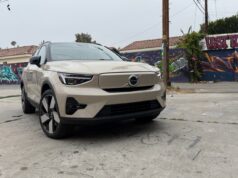Ford, Nissan and Mercedes-Benz have signed a new three-way agreement to accelerate the commercialization of fuel cell electric vehicle technology with the goal to launch the world’s first affordable, mass-market FCEVs as early as 2017.

Ford, Nissan and Mercedes-Benz have signed a new three-way agreement to accelerate the commercialization of fuel cell electric vehicle technology with the goal to launch the world’s first affordable, mass-market FCEVs as early as 2017. The goal of the collaboration is to jointly develop a common fuel cell electric vehicle system while reducing investment costs associated with the engineering of the technology.
Together, Daimler, Ford and Nissan have more than 60 years of cumulative experience developing FCEVs. Their FCEVs have logged more than 10 million km in test drives around the world in customers’ hands and as part of demonstration projects in diverse conditions. The partners plan to develop a common fuel cell stack and fuel cell system that can be used by each company in the launch of highly differentiated, separately branded FCEVs, which produce no CO2 emissions while driving.
“Fuel cell electric vehicles are the obvious next step to complement today’s battery electric vehicles as our industry embraces more sustainable transportation,” said Mitsuhiko Yamashita, Member of the Board of Directors and Executive Vice President of Nissan Motor Co., Ltd., supervising Research and Development. “We look forward to a future where we can answer many customer needs by adding FCEVs on top of battery EVs within the zero-emission lineup.”
“We are convinced that fuel cell vehicles will play a central role for zero-emission mobility in the future. Thanks to the high commitment of all three partners we can put fuel cell e-mobility on a broader basis. This means with this cooperation we will make this technology available for many customers around the globe,” said Prof. Thomas Weber, Member of the Board of Management of Daimler AG, Group Research & Mercedes-Benz Cars Development.
“Working together will significantly help speed this technology to market at a more affordable cost to our customers,” said Raj Nair, group vice president, Global Product Development, Ford Motor Company. “We will all benefit from this relationship as the resulting solution will be better than any one company working alone.”









